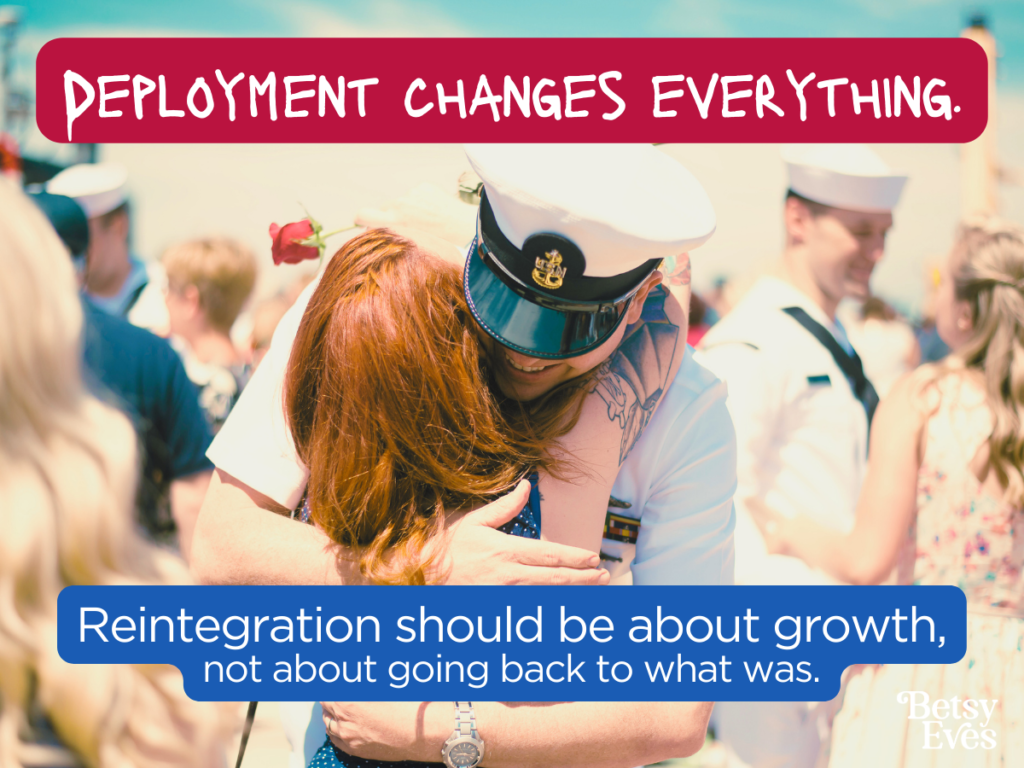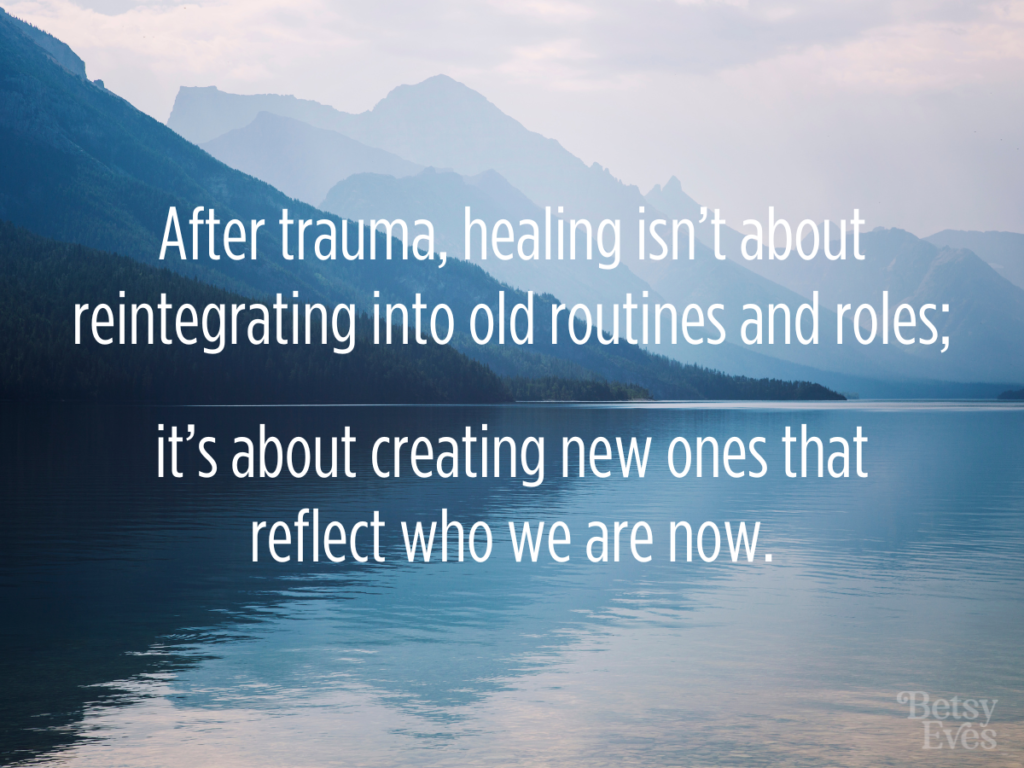Reintegration. It’s a word that has followed me throughout my life as a military spouse, trailing behind every deployment and separation like an unwelcome shadow. But as I’ve come to realize, rethinking reintegration is crucial. The term reintegration doesn’t just fall short—it’s a disservice to what really happens during those times, and what should be happening instead.

The Reality of Rethinking Reintegration After Deployment
My first experience with reintegration came during the height of the wars in Iraq and Afghanistan. My husband, like so many others, deployed for long stretches, leaving behind a life that was supposed to wait for him, unchanged, until his return. The reality, of course, was far more complicated.
Deployments, especially in those years, were intense and prolonged. The person who returned home was never the same as the one who left, yet the expectation of reintegration remained the same: pick up where you left off, resume the roles you once played, and pretend that everything is as it was.
For a heartfelt reflection on the challenges of deployments and the emotional journey of homecomings, you can explore my experiences here: He’s Home! – JavaCupcake. It offers a glimpse into the raw emotions and realities of welcoming a loved one back after deployment, emphasizing how these moments are both joyful and challenging.

Hospitalizations and the Challenge of True Reintegration
This concept of rethinking reintegration isn’t limited to deployments. Over the years, we’ve navigated numerous separations due to medical treatments and hospitalizations, each one requiring us to reinvent the idea of what it means to come home. One of the most difficult periods was when my husband returned home from traumatic brain injury (TBI) and PTSD-related hospitalizations. The man who walked through the door was not the same person who had left.
We received a set of expectations to follow—steps to reintegrate—but none of it addressed the fundamental truth: we weren’t the same people, and we couldn’t go back to the life we had before.
The Need for Transformation, Not Reintegration
The expectation of reintegration fails to account for the changes that occur during separation—changes that are often profound and irreversible. Rethinking reintegration suggests that the goal is not to return to a previous state, but to create a new path forward.
We must recognize that we’re different people now, with different needs, perspectives, and goals. And instead of forcing ourselves back into old roles and routines, we should create new ones that reflect who we are today.
In many ways, the process we’re going through now, as my husband prepares to leave the PTSD program, differs fundamentally from the reintegrations of the past. There’s no expectation of returning to the way things were because we both know that’s impossible.
Instead, we focus on what comes next—on building a life that’s authentic to who we are now, rather than who we were before. This is the essence of rethinking reintegration—it’s about transformation, not simply returning.

This shift in perspective is critical, not just for us, but for all military families. Rethinking reintegration, as traditionally understood, places an unfair burden on those who have already been through so much. By framing this process as a transformation rather than a return, we give ourselves the space to grow, heal, and move forward in a way that’s true to our current reality.
As a military spouse who has lived through multiple separations, deployments, and medical challenges, I’ve seen firsthand the limitations of the word “reintegration.” It’s time we retire it, or at the very least, rethink what it means. Rethinking reintegration means using a language that reflects the truth of our experiences—a language that honors the changes we’ve undergone and the new paths we’re forging.
We’re not reintegrating. We’re evolving, and it’s time America understands that.
For a deeper understanding of how service-related injuries ripple through families, affecting every aspect of life, I invite you to read my reflection on the unseen impact these injuries have on military families: Service-Related Injuries: The Unseen Impact on Families.


